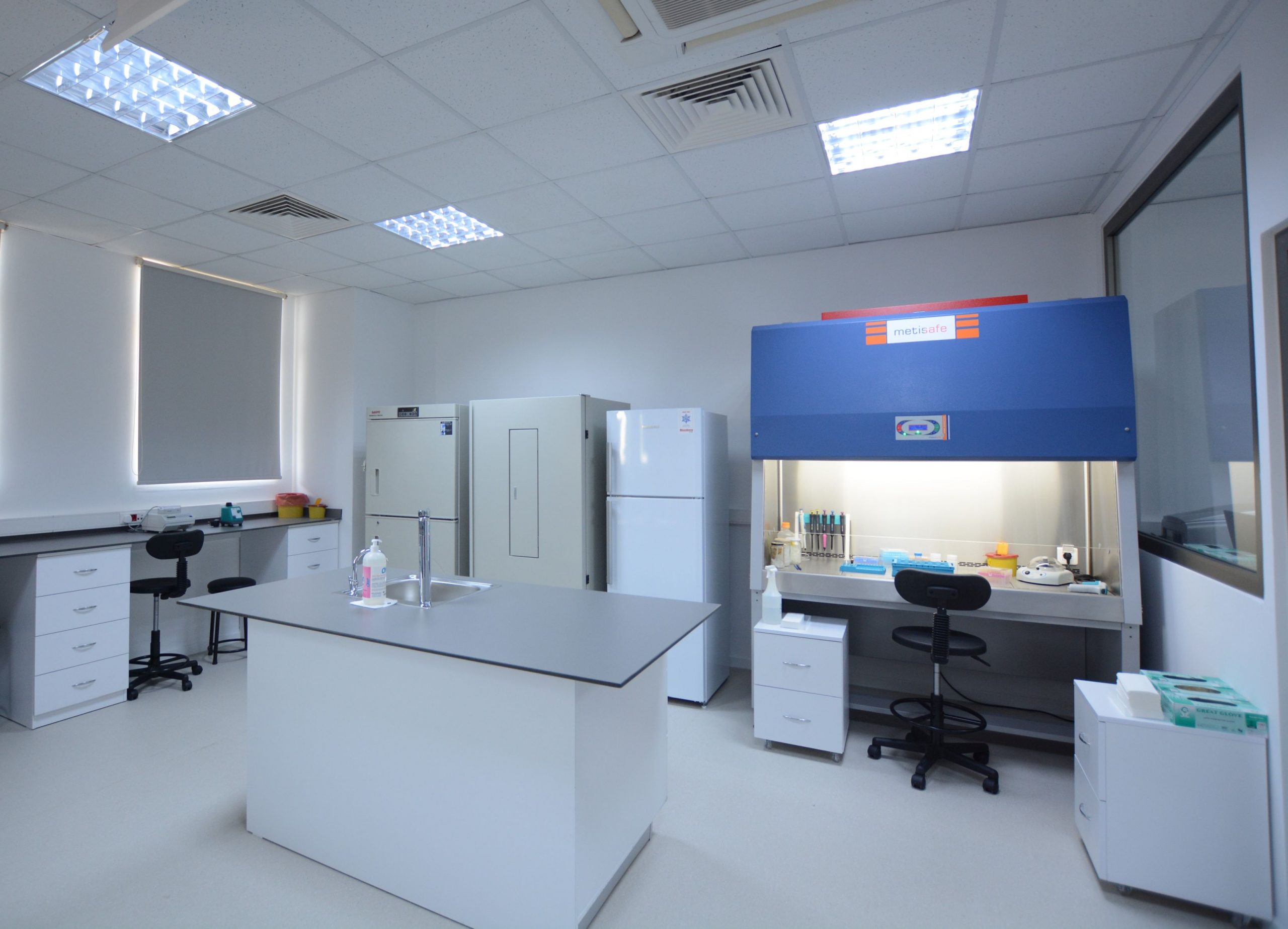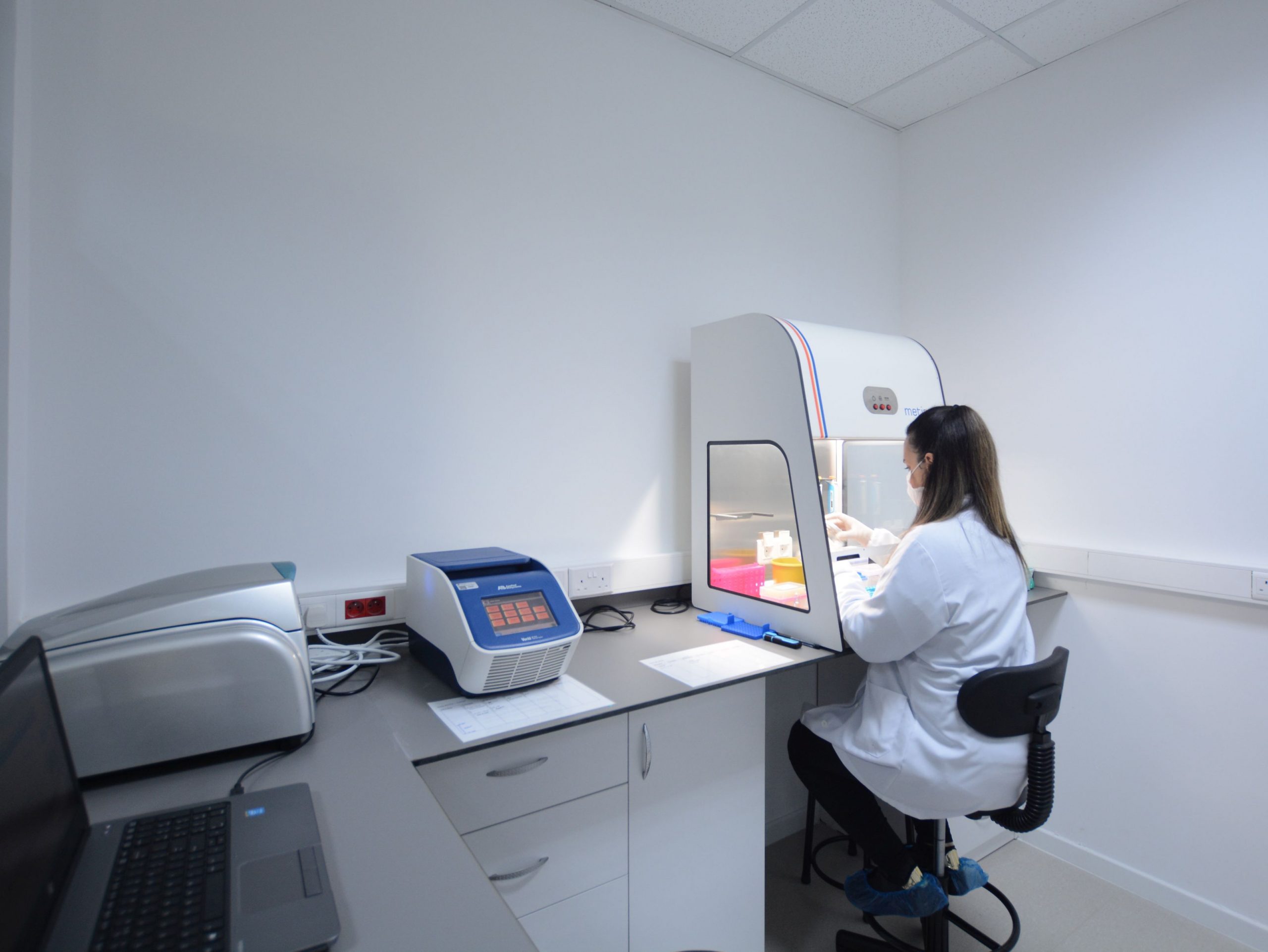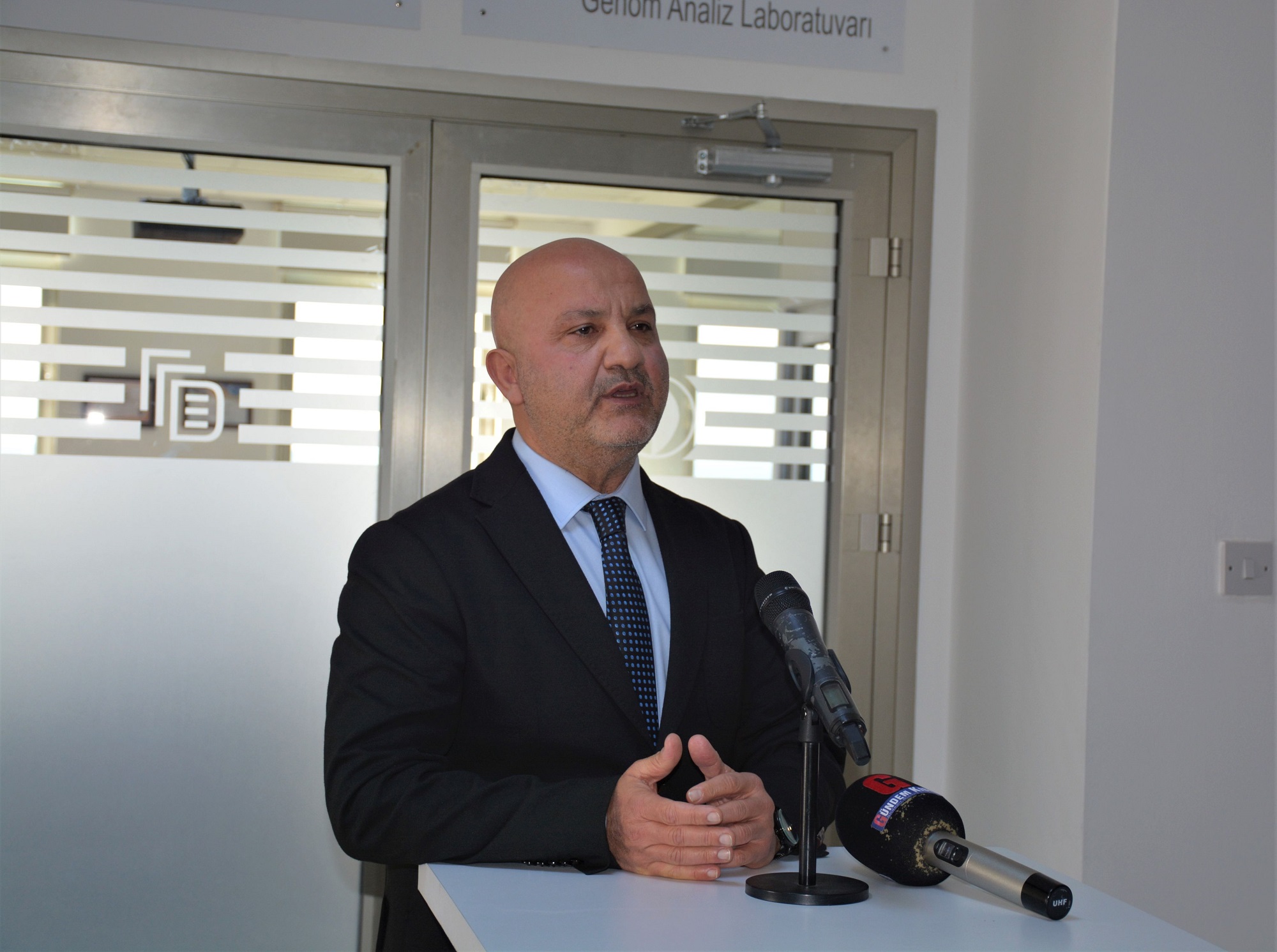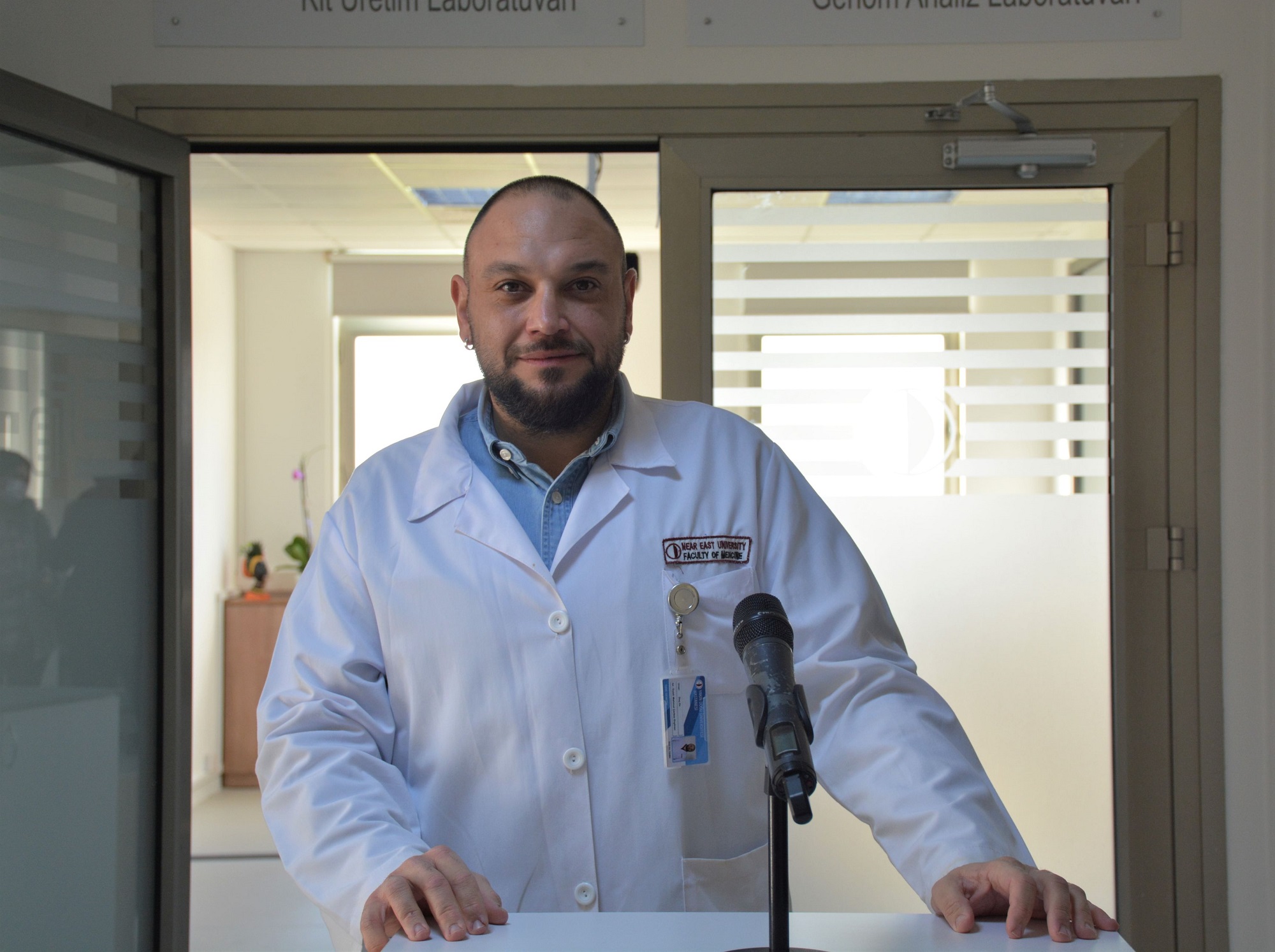
The Genome Analysis Laboratory, which was completed and opened by the Near East University Hospital, eliminates the external dependency of the TRNC in the genetic analysis of many diseases, especially genetic diseases and cancer, along with COVID-19.
It has been more than 2 years since COVID-19, which was first seen in China in December 2019, entered our lives. In this process, we learned a lot about SARS-CoV-2, which caused the disease that turned into a pandemic through the scientific studies carried out all over the world. However, it is difficult to say that the scientific world knows everything about SARS-CoV-2. One of the most important reasons for this situation is undoubtedly that the virus is constantly changing with the mutations it has undergone and gaining new adaptations and features with each new variant that emerges with these changes.

Near East University put an end to TRNC’s external dependency in genome analysis
In order to properly understand SARS-CoV-2 and its transformations, it is vital to analyze the genetic material of the virus. Near East University, with the Genome Analysis Laboratory it opened after completing its establishment, started to carry out genetic analyzes that ensure the genetic change and definitive confirmation of SARS-CoV-2 in the TRNC. In this respect, the Genome Analysis Laboratory eliminates the external dependency of the TRNC in the genome analyzes of many diseases, especially genetic diseases, cancer and the precise determination of viruses other than SARS-CoV-2, along with COVID-19.
Genetic material sequence analysis is used as a guide in many critical issues, from the diagnosis of the disease to its treatment, from its development to the characteristics of the new variant. These analyzes are needed to monitor the genetic changes of the virus, to determine the source of the virus, to monitor the ways of spreading, to identify the changes that the virus has undergone over time, to identify the contagiousness, adhesion to the receptor, to determine the course of infection and to create treatment alternatives.
At the opening of the Genome Analysis Laboratory, Near East University Vice-Rector Prof. Dr. Tamer Şanlıdağ and Near East University Kit Production and Genome Analysis Laboratories administrative staff Assoc. Prof. Dr. Mahmut Çerkez Ergören made speeches. After the opening, the Near East University Genome Analysis Laboratory, Kit Production Laboratory and the COVID-19 PCR Diagnostic Laboratory were introduced to the members of the press.

Prof. Dr. Tamer Şanlıdağ: “We are eliminating the external and dependency of the TRNC in genome analyzes that are needed in many other fields, especially in COVID-19.”
In his speech at the opening of the Genome Analysis Laboratory, Near East University Vice-Rector Prof. Dr. Tamer Şanlıdağ said, “As a university, we have tried to support both our country and humanity with all kinds of academic and innovative studies. Even in the most adverse conditions, we produced masks, disinfectants, face shields and respirators. We tried to keep the health system of our country alive by opening our emergency services and intensive care units to the service of our people. In the ongoing process, we established and developed the COVID-19 PCR Diagnostic Laboratory, and these studies continued with the Kit Production Laboratory and the Genome Analysis Laboratory establishment.”
Stating that they work with a team of experts highly experienced in their fields, Prof. Dr. Şanlıdağ said, “The Near East University Variant Analysis Kit has also been designed by our colleagues in these laboratories and is now ready for use. In addition, our quantitative SARS-CoV-2 PCR Kit, which will facilitate the work of physicians following the treatment, has also been designed and will be used in the near future.”
Underlining that they have made another very important step in the fight against SARS-CoV-2 with the Genome Analysis Laboratory they opened, Prof. Dr. Şanlıdağ said, “With our Genome Analysis Laboratory, we are eliminating the TRNC’s dependence on abroad for genome analyzes applied not only for COVID-19 but also for many other fields, especially cancer.”

Assoc. Prof. Dr. Mahmut Çerkez Ergören: “We will be able to perform genome analyzes, the results of which have been expected for months until now, in 5-6 hours in our own laboratory.”
Near East University Kit Production and Genome Analysis Laboratories administrative staff Assoc. Prof. Dr. Mahmut Çerkez Ergören, on the other hand, started his speech at the opening by sharing the happiness he felt for realizing his dream of performing gene analyzes in their own laboratories as a geneticist.
Assoc. Prof. Dr. Mahmut Çerkez Ergören said, “Until now, we have been dependent on abroad for gene and genome analyzes that should be done for prenatal, postnatal and cancer treatment in the diagnosis of genetic diseases. Now, by performing all the genome-based analyzes required for diagnosis, treatment and research in our own laboratories, we will be able to carry out the tests that have been expected for months for the results, in 5-6 hours.”
Stating that they carry out their COVID-19 studies with a multidisciplinary team at Near East University, Assoc. Prof. Dr. Mahmut Çerkez Ergören said, “In our research and analysis, we are not only trying to find results, but we are interpreting the result by questioning it with all its reasons and from multiple perspectives. It is a product of this way of working that we produced our own PCR Kit in the TRNC and established our own laboratory for genome analysis.” Stating that he paved the way for his studies with the opportunities provided by the Near East University, Assoc. Prof. Dr. Ergören said, “I would like to thank the farseeing administration of Near East University very much. This success also prevented the brain drain. It also paved the way for young minds who are experts in the field of genetics to stay in the country and contribute to their own country.”